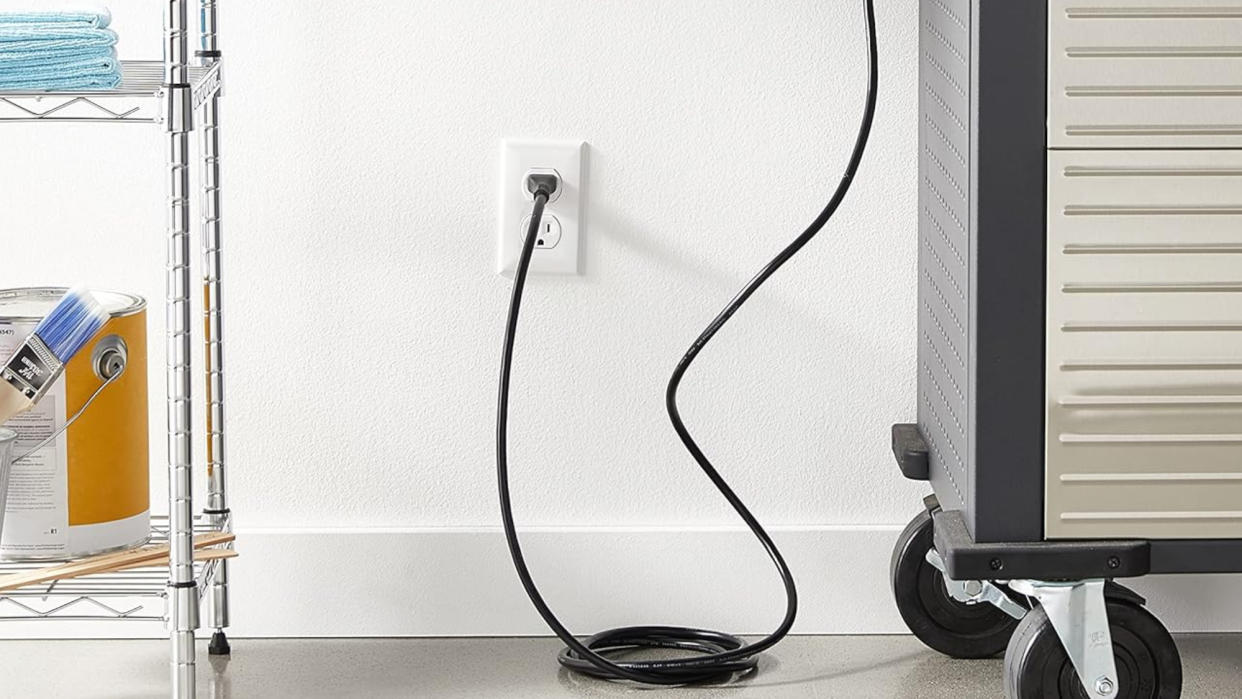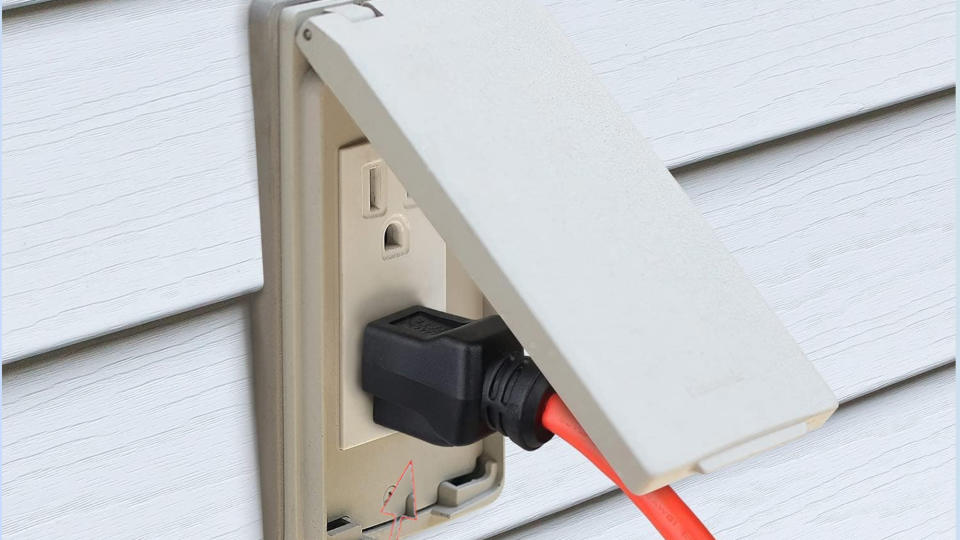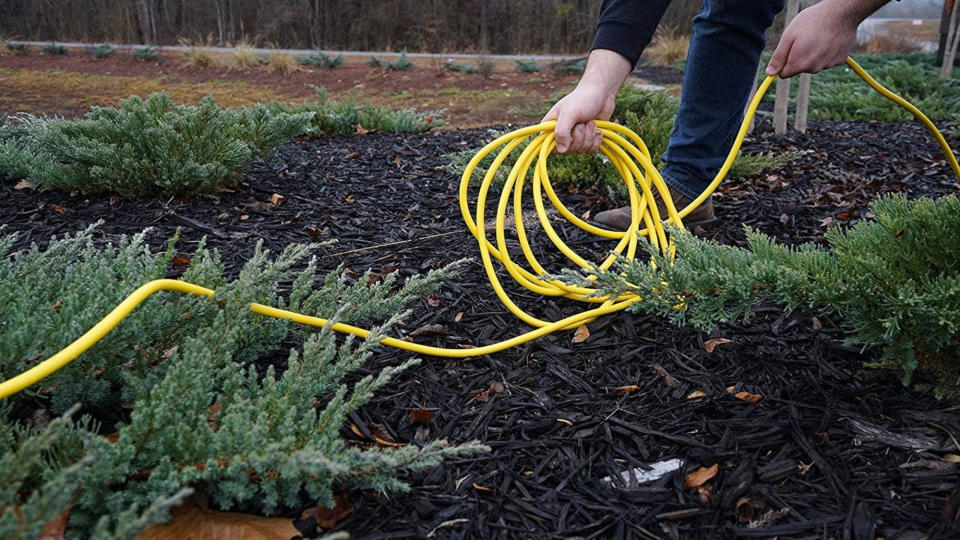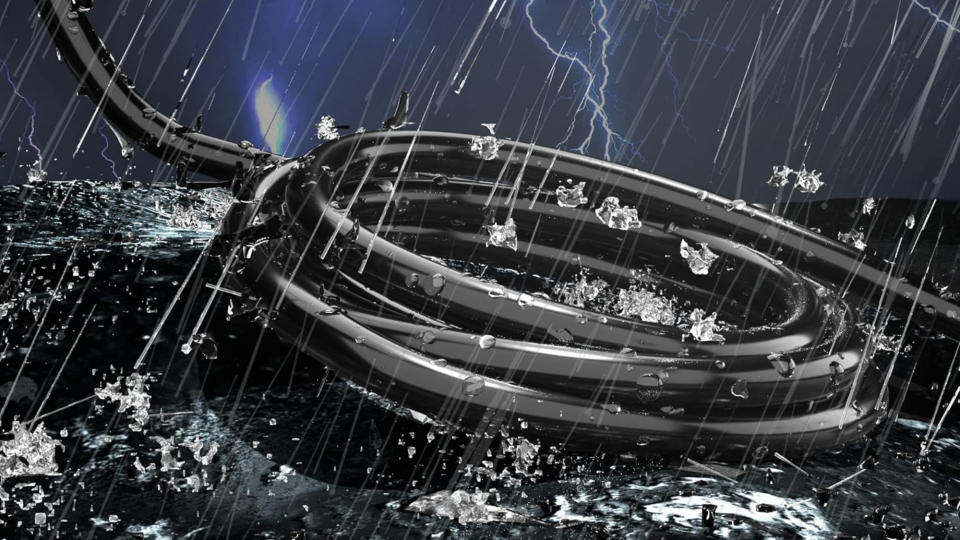Buying an extension cord? These are the 3 things you should consider

Extension cords are indispensable in my home. They give me the flexibility to use devices with short power cables wherever I want to use them when they can't reach an outlet. Whether I need extra slack to run a circular saw in my backyard or simply power up my PlayStation 5 on the far side of a room, these cords frequently come in clutch. But not every extension cord is created equal.
Before you buy an extension cord there are three things you should always look for. These considerations are; how much power you need to draw, length the electricity needs to travel, and whether or not the cord is weatherproofed for outdoor use. Keep reading to see how all of these factors work together to make or break your experience.
Power rating


HUANCHAIN 100 FT 16 Gauge outdoor extension cord: was $33 now $27 @ Amazon
This hybrid extension cord can be used both indoors and outside. It has a 3-prong outlet with a 10 amp, 125 volts, 1250 watt power rating. It even comes with velcro packing so it's easy to wind up and store away after each use.View Deal
Every extension cord is rated for a maximum wattage or amperage. You'll first want to determine the total amperage required by the devices you plan to plug into it. That way you can buy an extension cord with a rating that accommodates or even exceeds that. If your device doesn't receive enough power this will hinder its performance.
It's crucial to match your wire's power rating to your equipment to ensure it functions not only properly, but safely too. You should almost never plug energy-hungry appliances into extension cords. That's because they draw large amounts of power that often exceed the rating of the average extension cord. Increased demands on a thinner cord can cause overheating, fires, or even damage to equipment.
Additionally, you'll want to buy a cord of the appropriate gauge. Gauge is the thickness of an extension cord's conductive wires. Thicker wires (lower gauge numbers like 12 or 10) can carry higher loads without overheating or dropping as much voltage. For heavy-duty uses (saws, generators, etc.) or delivering the full amount of power over longer distances, go with a lower gauge extension cord.
Length between outlet and device


POWTECH 15 FT Heavy Duty 3 Prong 14 Gauge Indoor Extension Cord: $15 @ Amazon
You can power heavy-duty tools and major appliances with this 14-gauge extension cord. At just $15 you're paying $1 per foot of wire. It features an angled plug to sit tighter against your outlet. You can expect a maximum of 1875 Watts, 15 Amps, and 125V from this model. View Deal
The length of an extension cord determines far more than its reach. All the power an extension cord supplies decreases over longer distances because wire introduces a resistance. Resistance increases with the length of the cord, so the further electricity has to travel the lower the voltage will measure at the appliance.
Machines that receive too little voltage compensate for the lack of energy by drawing more current to accomplish their normal workload. That can overload and overheat the cord, which will potentially cause a fire. This is why it's important to consider the distance between your gadget and the intended power source and buy the right fit.
Opting for a longer cord than you think you need can provide added versatility and prevent you from needing to buy multiple cords. At the same time, a cord that's too long can both create unnecessary tripping hazards and underdeliver on amperage. For example, while a cord may provide 15 amps, that can change after the 25 or 50-foot distance mark and drop as low as 12 amps.
Outdoor usage and weather resistance


Southwire 50 FT Heavy Duty 3 Prong 12 Gauge Outdoor Extension Cord: was $44 now $33 @ Amazon
This hybrid extension cord is rated and UL-listed for indoor and outdoor use. It features a lighted end to let you know you have power to the end of the cord when you need it. The Vinyl jacket is moisture and abrasion-resistant and will resist prolonged exposure to sunlight.View Deal
Not all extension cords are suitable for outdoor use. Outdoor-rated cords are constructed with weather-resistant materials like rubber and vinyl for added durability. That's in addition to reinforced insulation and weatherproof connectors that help them withstand exposure to sunlight, moisture, and temperature changes. You should always opt for an extension cord specifically labeled for outdoor use when using electrical tools or appliances outside.
In general, it's better to spend a few dollars more to buy an overspecced extension cord rather than be underprepared. It might be more than you need for something light like a phone charger, but the stronger durability can come in handy if you need to use it with more demanding equipment down the line.
You should not use a device that draws a significant current with an extension cord. But if you must in an emergency, make sure it's a thick, short extension cord that provides a high amount of voltage to prevent motor or part damage and see proper performance. Even better, if it's versatile enough to work outside in a variety of conditions. By selecting the right extension cord for your needs, you can comfortably power your equipment knowing its parts won't be worn down or likely to cause a fire.

